While New Yorkers are getting hammered by skyrocketing costs and crime, the incumbents who created this mess have been busy protecting themselves.
New York Democrats drew redistricting maps so blatantly unconstitutional that the courts have thrown them out just weeks before the primary. This is wrong regardless of who is in charge; we all lose when maps are drawn to protect the powerful, not give voters a genuine chance to elect their own representatives.
Leave it to Gov. Hochul to take a mess of her party’s own making and somehow devise a solution that benefits her more. While a wise court decision forced some primaries to move to August to accommodate new line-drawing, Hochul and fellow Albany insider Lee Zeldin have insisted on keeping the gubernatorial and Assembly primaries in June, creating voter confusion, depressing turnout and costing taxpayers another $25 million.
These obvious problems are why primaries were consolidated three years ago; Assembly Speaker Carl Heastie said it was to “make it easier, not harder” to vote, and Senate Majority Leader Stewart-Cousins called it a “common-sense way to increase participation in the electoral process.” They need to honor their past statements and consolidate primaries now.
This broken process and scrambled timetables also mean third-party candidates have a very narrow window to comply with petitioning requirements that may prove impossible to meet, protecting the two major parties at the expense of voter choice. This is an insider protection racket, indeed.
Throughout my career, I have led some of the largest, most successful corporate turnarounds in the country’s history because I’ve focused on what’s best for the company’s customers and employees rather than what benefits a certain group or individual. In this case, management (Albany insiders) has routinely failed to deliver for those customers (taxpayers and voters) and needs to be removed.
Successful businesses embrace competition, knowing it makes them better, but in Albany, the insiders write their own rules to eliminate competition, because they know true competition will expose their weaknesses and cost them their jobs. And this is why New Yorkers lose, year after year.
To fix this, we need to change the system so that voters, not politicians, come first. That’s why the first plan I released in my campaign for governor was a government reform plan, to fix the broken rules that consistently deliver terrible results for New Yorkers. Fixing this broken foundation is crucial to New York’s long-term success.
Giving New Yorkers better candidate choices starts with truly independent redistricting so that insiders don’t draw lines to protect themselves and barter for power at the expense of our communities.
We need to make it easier for candidates and parties to access the ballot. Last month, our campaign proudly turned in more than 36,600 signatures — the most in decades, if not ever, from a Republican challenger in New York State. But gubernatorial candidates in most states only have to pay a modest filing fee, giving voters broader choices. Lower barriers to entry create more competition for ideas and votes, and voters win.
To shore up New Yorkers’ confidence in the system, we need to strengthen rules that protect the integrity of our elections. A 2020 congressional election in central New York took months to resolve; in March, the city’s Board of Elections publicly admitted to having 900,000 voter records in need of being updated. We need to address these issues to restore confidence in the system through common-sense election rules that keep the process open and fair for all New Yorkers, including a ban on ballot harvesting and counting ballots postmarked after Election Day, a voter ID requirement, mandatory voting roll audits, and allowing only citizens to vote in our elections.
It is absolutely critical to hold politicians accountable. Both the soon-to-be-defunct Joint Commission on Public Ethics and Hochul’s planned replacement rely on politicians picking their own watchdog — an obviously flawed process. Instead, we need an independent, nonpartisan, nonpolitical ethics watchdog. A new board should be required to provide the public with transparent reviews and regular reporting, in exchange for the ability to levy disciplinary sanctions for bad actors who abuse the public’s trust.
We need term limits — eight years for statewide offices and 12 years for legislative offices — so that fresh perspectives are brought to Albany each session. And we need review mechanisms like initiatives, referenda and recalls so voters can hold insiders directly accountable.
When leaders are insular and not held accountable, they consistently make bad decisions that ultimately destroy the organization. That is exactly what is wrong with Albany, and we need to fix it this year.
We can turn around New York, but it starts with electing an outsider who has the guts to fix its badly broken foundation.

